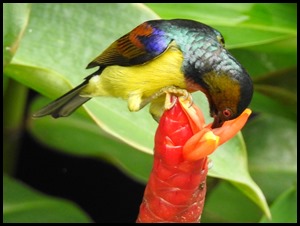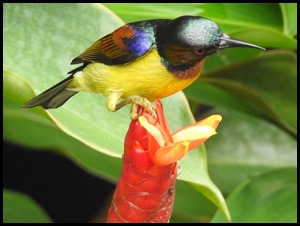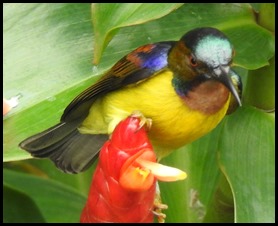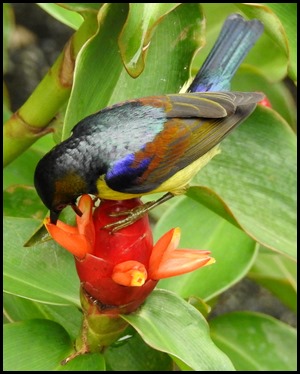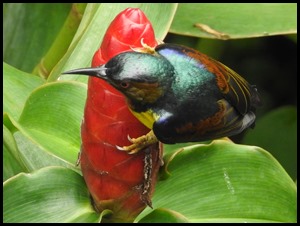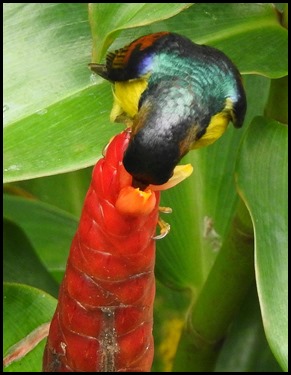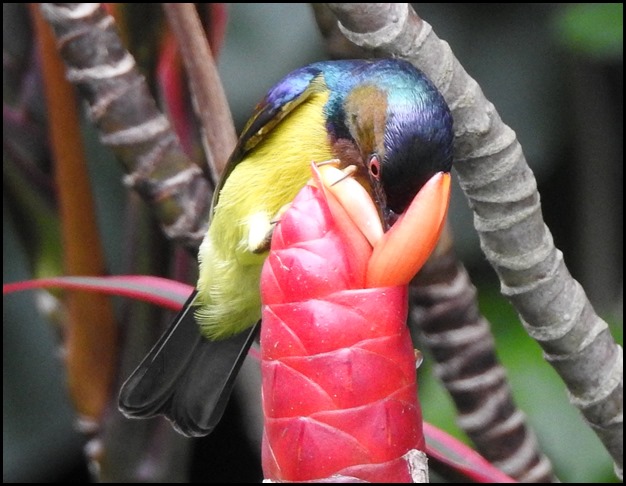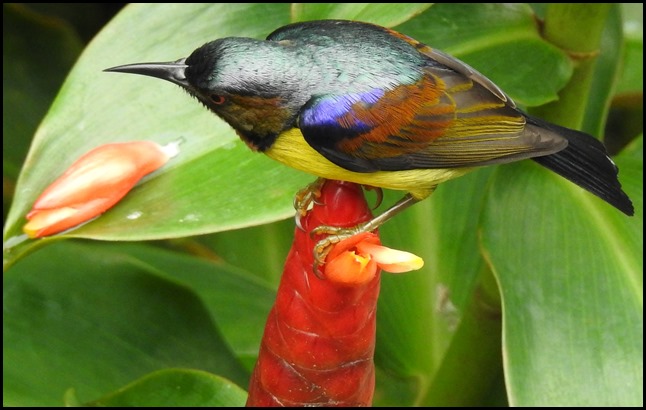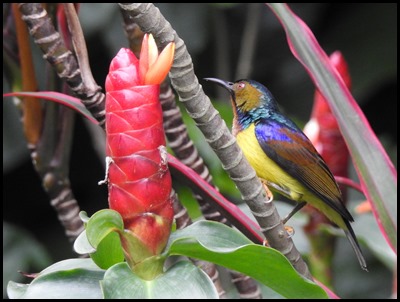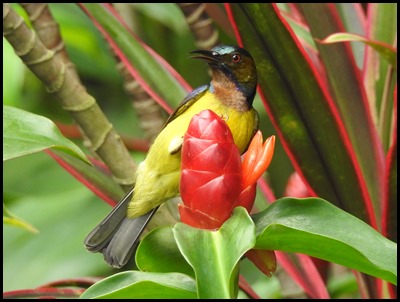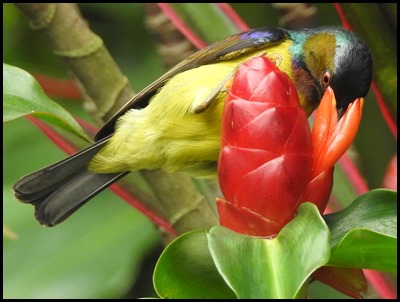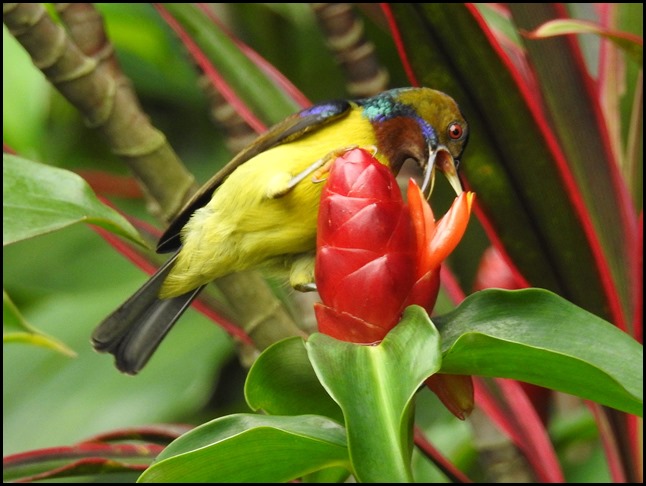Our First Sunbird

|
Our First
Sunbird
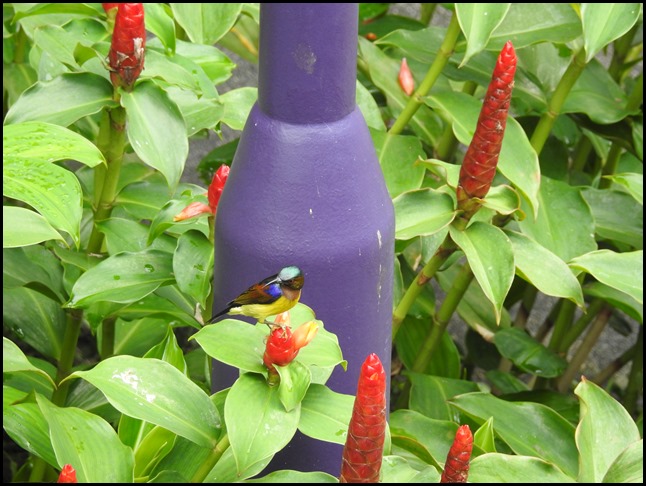 We had followed the path through the
Gardens by the Bay and had reach the stairs that would take us up close and
personal to our first Supertree, on our way down we saw something bright perched on an ornamental ginger.
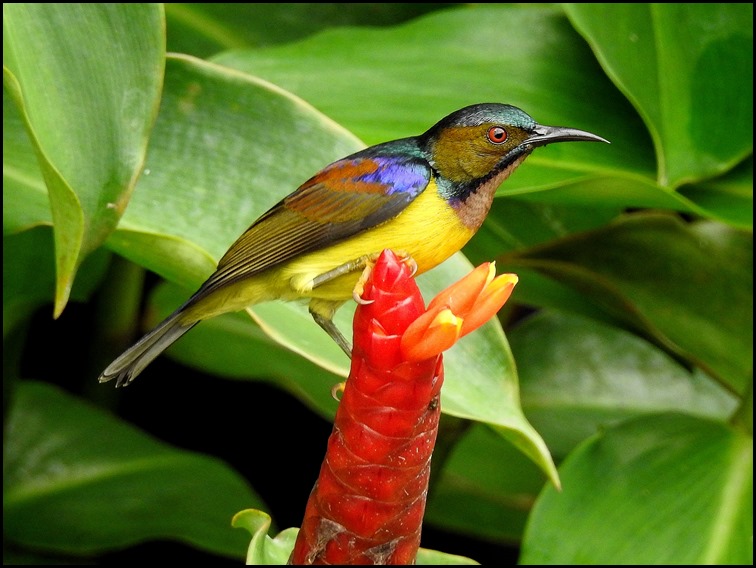 He shot off so fast but happily for
us, he came back and posed. Captivated by his colours
we stood for a while.
They are small, slender passerines from the Old World, usually with downward-curved bills. Many are brightly coloured, often with iridescent feathers, particularly in the males. Many species also have especially long tail feathers. Their range extends from Africa to Australia, across Madagascar, Egypt, Iran, Yemen, southern China, the Indian subcontinent, the Indochinese peninsulas, the Philippines, Southeast Asia and the surrounding Pacific islands, and the uppermost part of northern Australia. The number of species is greater in equatorial and tropical regions. There are 132 species in 15 genera. Most sunbirds feed largely on nectar, but will also eat insects and spiders, especially when feeding their young. Flowers that prevent access to their nectar because of their shape (for example, very long and narrow flowers) are simply punctured at the base near the nectaries, from which the birds sip the nectar. Fruit is also part of the diet of some species. Their flight is fast and direct, thanks to their short wings. The sunbirds have counterparts in two very distantly related groups: the hummingbirds of the Americas and the honeyeaters of Australia. The resemblances are due to convergent evolution brought about by a similar nectar-feeding lifestyle. Some sunbird species can take nectar by hovering like a hummingbird, but they usually perch to feed.
Off he went again and again, then he returned for a drink.
Such a shiny jacket.
Lovely to watch.
ALL IN ALL SO FAST, SO BRIGHT, SO PLEASED TO SEE HIM A LOVELY, BRIGHT LITTLE CHAP |
